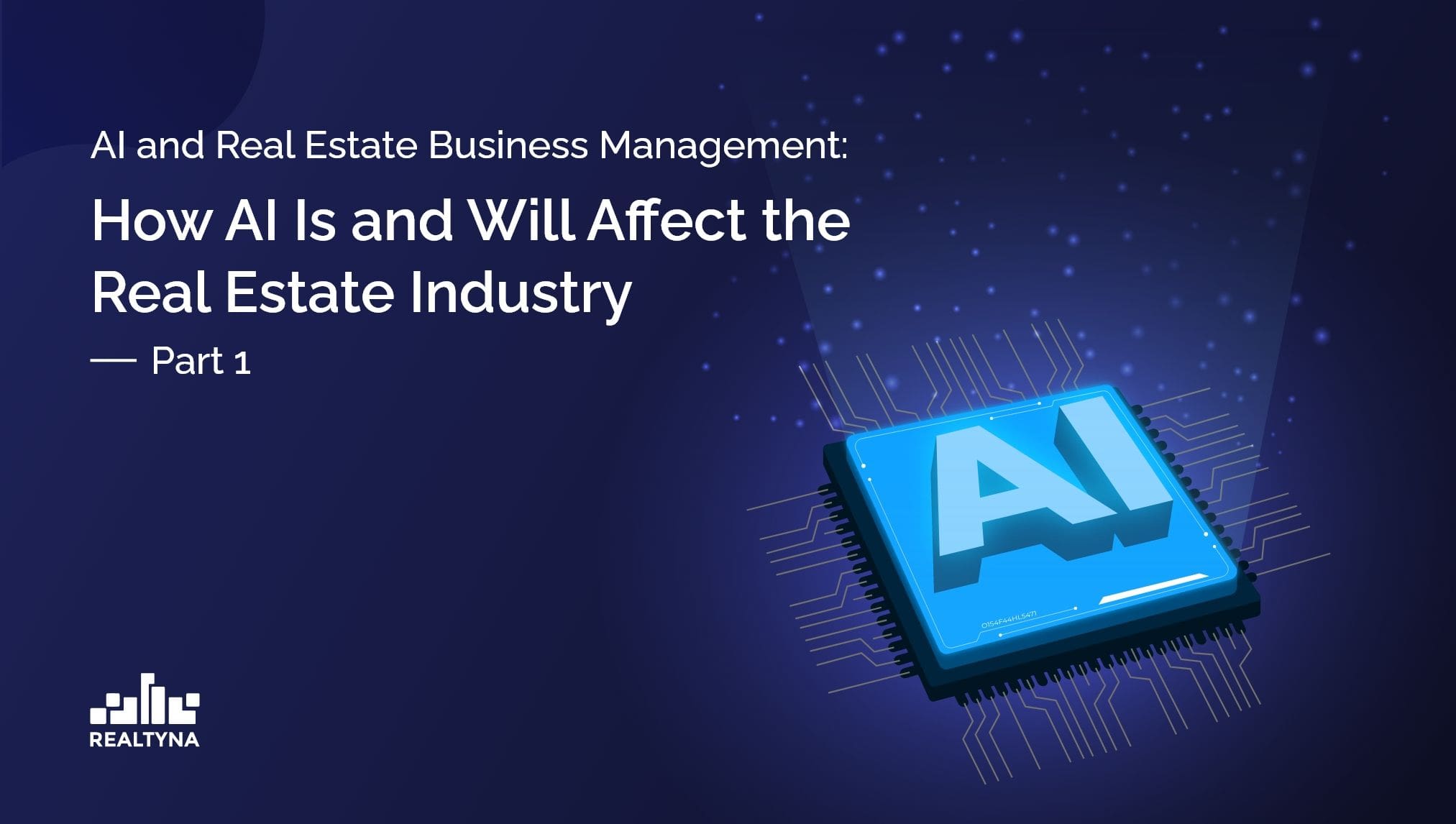You are viewing our site as an Agent, Switch Your View:
Agent | Broker Reset Filters to Default Back to ListAI and Real Estate Business Management, Part 1
March 21 2023
 AI, or artificial intelligence, is a pretty controversial topic in the business world. Thanks to the wave of Hollywood movies and sci-fi books, we see AI only through the lens of an all-powered machine that will take the world over.
AI, or artificial intelligence, is a pretty controversial topic in the business world. Thanks to the wave of Hollywood movies and sci-fi books, we see AI only through the lens of an all-powered machine that will take the world over.
While it is difficult to know exactly what the future holds, it's undeniable that AI has possibilities that can serve good.
The real estate industry is no exception when it comes to the negative perception of AI. While being one of the most lucrative industries, the real estate market has been slow to adapt to new technologies. And while real estate agents may be concerned about the rise of AI, we want to remind you, technology is just a tool. Real estate professionals are the mediators and the prime decision-makers, connecting clients to the real estate world.
AI in the Real Estate Industry: What Are the Possibilities?
Let's take a deeper look at what possibilities AI is creating for real estate professionals nowadays.
AI-Based Targeting and Smarter Ads
We already mentioned that AI-based solutions can process large quantities of data. And what is targeting if not making an informed decision about your target audience based on analyzing a large quantity of data? Many AI-based solutions use NLP, or natural language processing, to analyze communication patterns and predict—for example, whether a client is serious about buying a property or not. They can also determine which clients are more engaged with agents, thus predicting those that are more likely to become an actual client.
Real Estate Market Analysis
Analyzing the real estate market is an important part of making an informed decision about the home buying and selling process. It helps you understand the general state of the market, helping you be a better advisor to your client and have a stronger marketing strategy when it comes to showcasing listings and suggesting the best sales price.
Considering that AI is able to analyze a huge amount of data in a short period of time, and at the same time make predictions, it's a useful tool for real estate agents.
More Efficient Communication
AI right now is all about making every process more efficient. Communication is no exception. By analyzing a large set of data and analyzing communication patterns, AI-based solutions can make your communication process 10 times better and faster.
AI in Mortgage Industry
Implementation of AI in the mortgage industry is more task and workflow-related. AI in the mortgage industry is oriented on automation while at the same time improving compliance, quality, and processing times. Using a chatbot is just one example of enhancing processing time because clients don't need to wait for human agents, especially when they have common questions that are repetitive, routine, and don't require comprehension. This is something that AI can be responsible for.
The more complex questions that involve decision-making and advising are still and will continue to be done by human agents.
Real Estate Investment
The same applies to real estate investment. AI amplifies our possibilities when it comes to the data analyzing and prediction process. The predictive accuracy of AI that has access to large data pools is unmatched.
Matching Property to the Real Estate Client
The possibility of AI being able to match the property to the client is both exciting and scary. This is where we can understand the initial concerns about biases in predictive processes. But the promise that AI will amplify and improve the home search experience and make it more personalized benefits both clients and agents.
As Julianne Heller, data scientist at NAR, says, "Some companies avoid using AI because of the perceived costs and resources required to use it, a lack of trust in AI products, the difficulty in explaining what it does behind the scenes and a fear of an AI takeover related to job displacement.
"AI does not equate to replacement, but it supports human work and makes our lives easier," she said. "AI can improve the buyer and seller experience."
A Few Final Words
The possibilities of AI in the real estate industry are immense, but there are some problems that come with AI systems implementation. One thing is certain: real estate technology, specifically AI and machine learning, is an unavoidable future, whether we like it or not.
Therefore, we must understand and adapt. Establishing AI ethics in the real estate industry may be a first good step. The protection of client data will likely be another foremost priority. These measures may help algorithmic labeling and profiling to not be biased and based on human prejudices.
Transparency is the key when it comes to artificial intelligence, whether it concerns data usage or the AI implementation itself.
To view the original article, visit the Realtyna blog.









